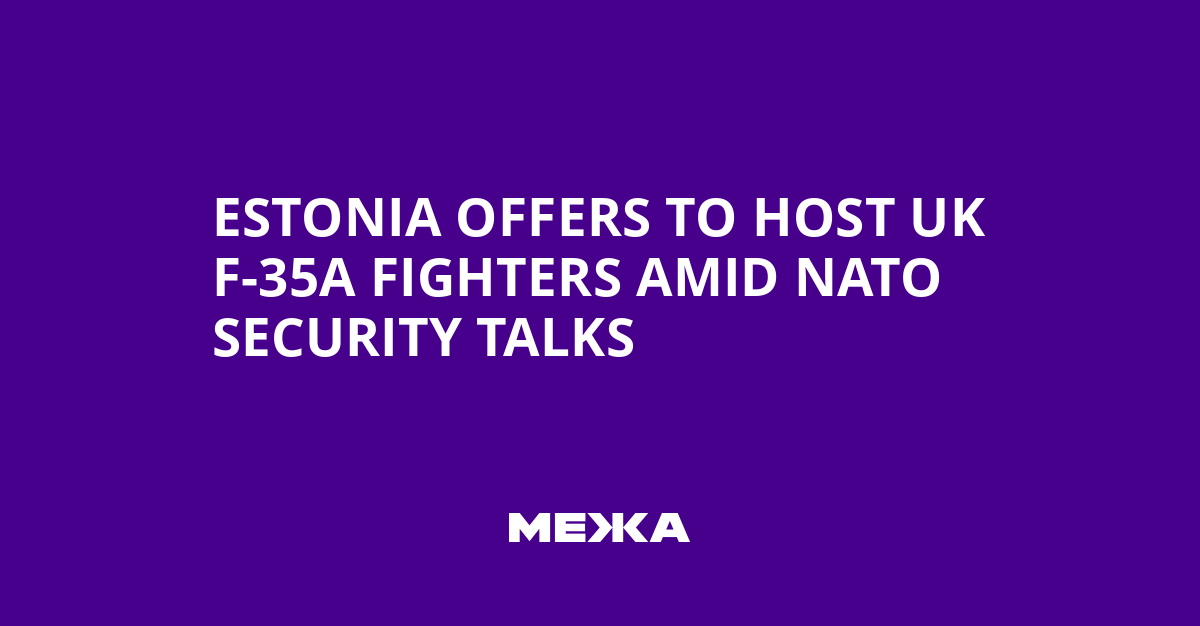Estonia has expressed readiness to host British F-35A fighters, which potentially can carry nuclear weapons. According to sources, in the United Kingdom this idea is viewed more as a provocation than as a tool to deter Russia. At the same time, after three Russian MiG-31s violated Estonian airspace and stayed in it for about 12 minutes, NATO leaders are considering regulating the use of weapons in potential conflicts.
I am always open. The doors are always open to our allies
– Hanno Pevkur
In response to questions about the possibility of hosting F-35A jets capable of carrying nuclear weapons, the head of Estonia’s Ministry of Defense said he is ready to engage in dialogue with partners and open to joint work on the issue of using such aircraft.
we are ready to welcome our allies
– Estonia’s Ministry of Defense
Pevkur emphasized that Tallinn is ready to discuss the format of cooperation with allies and does not rule out the possibility of using F-35As with a future nuclear component, with the partners’ consent.
they also have dual capability to deploy nuclear weapons
– Estonia’s Ministry of Defense
According to information circulating in Western circles, London may refrain from a direct deployment of F-35As in Estonia during their deployment. One of the interlocutors from the British Army noted that there is no need to station strategic forces near the Baltic states in such a format, and the aircraft themselves could serve more as a provocation than as a deterrent. It is also noted that during the first strike by Russia these aircraft would be under heightened risk.
they will act less as a deterrent and more as a provocateur
– A British Army interlocutor
In early 2025, the Prime Minister of the United Kingdom, Keir Starmer, announced plans to purchase 12 such aircraft with an expected delivery by the end of the decade. The publication notes that these jets are manufactured in the United States and tied to the supply of B61 nuclear weapons, which means Washington’s consent would be required for any nuclear strike.
On September 19, three Russian fighters were in Estonia’s airspace for 12 minutes. Estonia’s Foreign Minister Margus Tsahkna called this a violation of territorial integrity and the principles of the UN Charter, which oblige to refrain from threats or use of force. The Estonian government decided to initiate consultations with NATO allies under Article 4 of the North Atlantic Treaty. On September 21, Estonia convened an emergency meeting of the UN Security Council over this incident.
Next steps and regional dynamics
The country’s leadership continues coordinating with allies on Baltic airspace security and the role of F-35A aircraft in potential crises. Estonia emphasizes the importance of Transatlantic unity and clear regulatory arrangements for a joint response to threats from neighboring regions.
